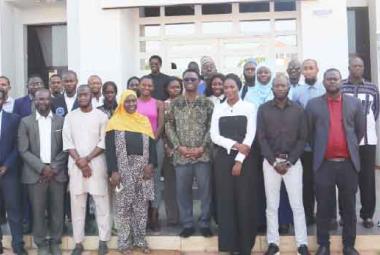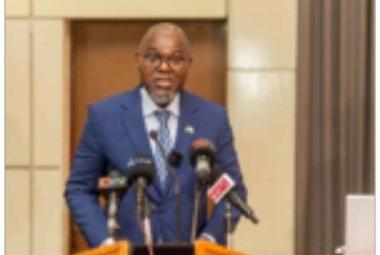By: Fatoumata Joof
The Vice President of The Gambia, His Excellency Mohammed B.S. Jallow has called for urgent action to address the rising mental health crisis in The Gambia during the 1st National Stakeholders Dialogue on Mental Health Rights at forum held at the Sir Dawda Kairaba Jawara International Conference Centre. In his keynote speech, the Vice President revealed alarming statistics, stating that 60% of mental health-related hospital admissions are linked to drug-induced psychosis, primarily caused by the abuse of substances such as kush and cannabis. He attributed the worsening situation to factors like stigma, low public awareness, and harmful traditional practices like exorcism. “This National Dialogue on Mental Health is both timely and crucial, offering an opportunity to raise awareness, reduce stigma, and recommend effective strategies for improving mental health services and tackling drug abuse,” VP Jallow explained.
The Vice President further outlined ongoing reforms to improve the mental health framework, including the drafting of a new Mental Health Bill and efforts to align with international commitments, such as the African Charter on Human and Peoples’ Rights and the UN Convention on the Rights of Persons with Disabilities. He emphasized the integration of mental health priorities into the Green Recovery National Development Plan (2023–2027) and reaffirmed the government’s commitment to the Sustainable Development Goals (SDGs) and Agenda 2063.
VP Jallow concluded by saying that the Government of The Gambia, through the Ministry of Health and the National Mental Health Programme, remains fully committed to advancing mental health, in partnership with development partners, to achieve the goals of the Recovery-Focused NDP, the UN SDGs, and Agenda 2063, while upholding our international obligations. The dialogue brought together representatives from the Ministry of Health, the United Nations, the diplomatic corps, ActionAid International The Gambia, civil society organizations, mental health experts, and the National Human Rights Commission. Stakeholders underscored the importance of collective action in tackling the stigma and improving access to mental health services.






